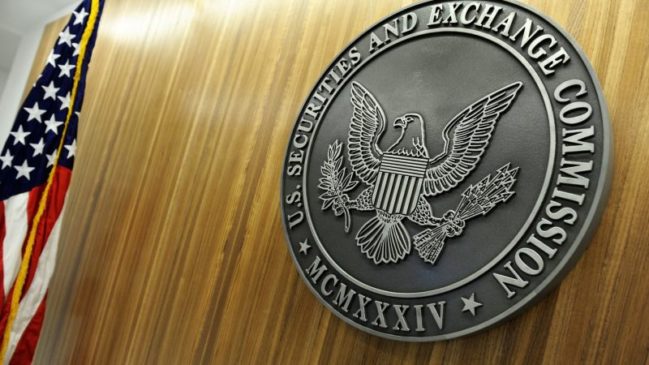In an increasingly digital world, cryptocurrencies have taken center stage, sparking global conversations about their role in financial markets, their potential for innovation, and their regulatory conundrums. Amid this burgeoning industry, two major cryptocurrency platforms, Binance US and Coinbase, have found themselves under intense scrutiny from one of the United States’ top regulatory authorities.
The U.S. Securities and Exchange Commission (SEC), a federal agency responsible for enforcing securities laws and regulating the securities industry, has filed a series of charges against both entities. The allegations bring to light significant questions about the operations of these platforms and how they adhere to the existing regulations – or, as the SEC asserts, how they sidestep them.
This article explores these charges, discusses the key differences between the accusations against Binance US and Coinbase, and considers the potential implications for the broader cryptocurrency market and U.S. investors. In the evolving landscape of digital assets, these legal developments represent significant milestones in the ongoing tug of war between innovation and regulation.
The SEC Takes Action: Binance US Facing Charges
The U.S. Securities and Exchange Commission (SEC) has recently made a seismic move in the world of cryptocurrencies. The regulatory body has filed a total of thirteen charges against Binance entities, including the founder, Changpeng Zhao. This marks a significant development in the ongoing debate about the role and regulation of cryptocurrencies in the U.S. financial landscape.
Binance, operating the world’s largest crypto asset trading platform, Binance.com, along with its U.S.-based affiliate, BAM Trading Services Inc., which runs the crypto asset trading platform, Binance.US, find themselves in the crosshairs of the SEC. Binance and Zhao have been charged with a variety of securities law violations, a move that has sent ripples across the global crypto market.
The charges include allegations that Binance and Zhao publicly claimed that U.S. customers were restricted from transacting on Binance.com, while in reality, they purportedly bypassed their own controls to clandestinely allow high-value U.S. customers to continue trading on the platform. Furthermore, the SEC alleges that while Binance and Zhao publicly claimed that Binance.US was created as a separate, independent trading platform for U.S. investors, they covertly controlled the operations of the Binance.US platform.
Another key accusation is that Zhao and Binance exercised control over the platforms’ customers’ assets, allowing them to mix customer assets or divert them at their discretion. This included diverting assets to Sigma Chain, an entity owned and controlled by Zhao. The SEC’s complaint further claims that BAM Trading and BAM Management US Holdings, Inc. misled investors about non-existent trading controls over the Binance.US platform. Sigma Chain is accused of engaging in manipulative trading, artificially inflating the platform’s trading volume.
The SEC has also alleged that the defendants concealed the fact that they were mixing billions of dollars of investor assets and sending them to a third party, Merit Peak Limited, also owned by Zhao.
The regulatory agency has charged Binance and BAM Trading with operating unregistered national securities exchanges, broker-dealers, and clearing agencies. The SEC’s complaint, filed in the U.S. District Court for the District of Columbia, alleges that, since at least July 2017, Binance.com and Binance.US, under Zhao’s control, operated as exchanges, brokers, dealers, and clearing agencies and generated at least $11.6 billion in revenue from transaction fees from U.S. customers.
The SEC’s allegations depict a web of deception, conflicts of interest, lack of disclosure, and calculated evasion of the law. These charges have raised significant concerns about the risk controls and corrupted trading volumes of Binance, while actively concealing who was operating the platform and the manipulative trading of its affiliated market maker.
These recent actions by the SEC mark an unprecedented step in the regulation of cryptocurrency exchanges and underline the seriousness with which U.S. regulators are addressing perceived violations of securities laws in the cryptocurrency industry.
In the next section, we will delve into the specifics of the charges and the potential implications for the cryptocurrency market.
The SEC’s Assault Continues: Coinbase Now Under Scrutiny
Coinbase, a prominent player in the realm of cryptocurrency exchanges, finds itself under fire from the U.S. Securities and Exchange Commission (SEC). The watchdog has now filed charges against Coinbase, Inc., claiming it operated as an unregistered national securities exchange, broker, and clearing agency. This marks another substantial move by the SEC as it continues to exert control over the ever-evolving landscape of cryptocurrencies.
The SEC alleges that Coinbase, since at least 2019, has been unlawfully facilitating the buying and selling of crypto asset securities, making billions in the process. The platform has allegedly blurred the lines of exchange, broker, and clearing agency services, all without registering these functions with the SEC as required by law. This differs notably from the charges against Binance, which involved more specific accusations of misconduct like manipulative trading and deceit.
In addition to this, the SEC has charged Coinbase for failing to register the offer and sale of its crypto asset staking-as-a-service program. This program allows customers to earn profits from the “proof of stake” mechanisms of certain blockchains and Coinbase’s efforts. However, the SEC claims that Coinbase failed to register its offers and sales of this staking program, thereby depriving investors of critical disclosure and protections.
As the SEC’s complaint lays out, Coinbase’s alleged failure to register has robbed investors of significant protections including SEC inspection, recordkeeping requirements, and safeguards against conflicts of interest, among others. Additionally, the complaint implicates Coinbase’s holding company, Coinbase Global Inc. (CGI), as a control person of Coinbase and thus also liable for certain violations.
SEC Chair Gary Gensler criticized Coinbase’s alleged infractions, stating, “Coinbase’s alleged failures deprive investors of critical protections, including rulebooks that prevent fraud and manipulation, proper disclosure, safeguards against conflicts of interest, and routine inspection by the SEC. Further, as we allege, Coinbase never registered its staking-as-a-service program as required by the securities laws, again depriving investors of critical disclosure and other protections.”
Gurbir S. Grewal, Director of the SEC’s Division of Enforcement, added that Coinbase “simply can’t ignore the rules because you don’t like them or because you’d prefer different ones,” emphasizing the severity of the SEC’s allegations and the potential impact on the investing public.
The SEC’s complaint, filed in the U.S. District Court for the Southern District of New York, seeks injunctive relief, disgorgement of ill-gotten gains plus interest, penalties, and other equitable relief.
The SEC’s charges against Coinbase, coming on the heels of the charges against Binance, highlight the regulatory body’s growing focus on and intervention in the world of cryptocurrencies. These actions underscore the necessity for crypto asset trading platforms to adhere to existing securities laws, as the sector becomes increasingly mainstream and its regulatory environment ever more stringent.
Potential Repercussions for the Cryptocurrency Market and U.S. Investors
The charges leveled against Binance and Coinbase by the SEC represent a pivotal moment for the cryptocurrency industry, particularly within the United States. These cases will likely have widespread implications for the future of the market and could fundamentally reshape how U.S. investors interact with cryptocurrencies.
A key implication pertains to regulatory compliance. The charges signal a clear message from the SEC: all cryptocurrency exchanges operating within the U.S. must fully comply with existing securities laws. As a result, platforms will likely need to invest more heavily in legal expertise, compliance, and risk management. This could lead to increased costs for the platforms, which might be passed onto customers in the form of higher fees or limited services.
Moreover, these charges underscore the SEC’s stance that certain cryptocurrencies, especially those involved in staking programs or Initial Coin Offerings (ICOs), can be classified as securities. Therefore, platforms that offer these services might need to adjust their business models to comply with securities regulations. This might also dissuade some exchanges from listing new tokens for fear of potential legal repercussions, thereby limiting the range of assets available to U.S. investors.
Another potential outcome could be a slowdown in innovation within the U.S. cryptocurrency market. Fearing regulatory backlash, some platforms might become more cautious in rolling out new services and products. While this might safeguard against potential violations, it could also hinder the competitive position of U.S. platforms relative to their global counterparts.
For U.S. investors, these developments could have mixed effects. On one hand, the SEC’s actions could enhance investor protection, providing additional safeguards against fraudulent or manipulative practices. On the other hand, if exchanges respond by delisting certain assets or increasing fees, investors might face a more restrictive and costly trading environment.
Furthermore, the outcome of these charges could impact the broader adoption and perception of cryptocurrencies. Success for the SEC could instill confidence in potential investors who have been on the fence due to regulatory uncertainties. However, a heavy-handed approach could also risk stifling innovation and could push businesses or investors towards more crypto-friendly jurisdictions.
Lastly, the charges could catalyze calls for clearer, more specific regulations tailored to cryptocurrencies. While the SEC is applying traditional securities laws, many industry participants argue that these laws are ill-suited to the unique features of cryptocurrencies and blockchain technology. A resolution of these cases could therefore pave the way for a long-awaited regulatory clarity.



